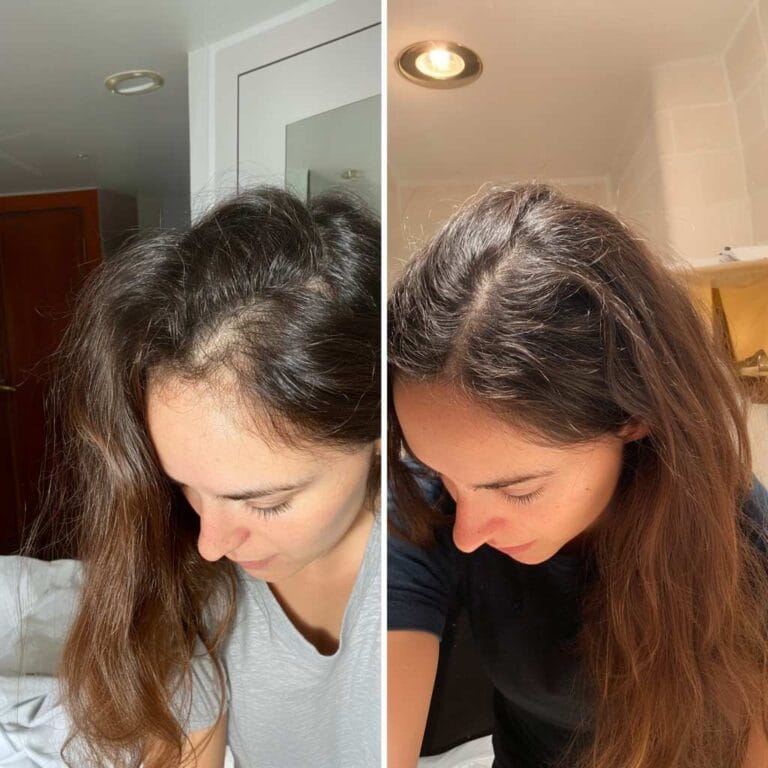
Why Is My Hair Falling Out? Hair loss is a common concern affecting millions of people worldwide, and in 2025, new research is revealing even more causes behind thinning hair and shedding. From hormonal changes and stress to nutritional deficiencies and environmental factors, understanding the root causes of hair fall is the first step toward effective treatment. In this article, we’ll explore the top reasons why your hair may be falling out and what you can do to protect and restore your hair health.
Why Is My Hair Falling Out? Explain the Top Causes in 2025
Genetic Factors
Hair loss can happen for many reasons, and understanding the cause is key to finding the right solution. One of the most common causes is genetic factors, also known as androgenetic alopecia. In this condition, your genes make your hair follicles sensitive to a hormone called DHT, which gradually shrinks the follicles. Over time, this produces thinner hair and may eventually stop hair growth in certain areas. In men, it often shows as a receding hairline or bald spots, while in women, thinning usually appears across the crown.
Hormonal Changes
Hormonal changes can also play a big role in hair loss. Hormones act like messengers that tell your hair when to grow. Changes during pregnancy, menopause, or thyroid disorders can disrupt the hair growth cycle, often leading to temporary shedding. However, if hormonal imbalances persist, they can cause more significant and long-term thinning.
Stress and Mental Health
Stress and mental health are other important factors. Severe stress or emotional trauma can push hair follicles into a resting phase prematurely, causing sudden shedding, a condition called telogen effluvium. Typically, hair grows back once stress levels decrease, but chronic stress can extend the hair loss period.
Nutritional Deficiencies
Nutritional deficiencies are another common cause. Hair needs essential nutrients such as protein, iron, vitamin D, zinc, and B vitamins to grow strong. Poor diets, crash diets, or medical conditions that prevent proper nutrient absorption can weaken hair and accelerate shedding.
Medical Conditions
Certain medical conditions can also lead to hair loss. Alopecia areata, an autoimmune condition, makes the body attack its own hair follicles, causing patchy bald spots. Other illnesses like scalp infections, diabetes, or chronic inflammation can also interfere with healthy hair growth.
Disclosing Affiliate Link
Medications
Medications may contribute as well. Some drugs, including chemotherapy, blood thinners, antidepressants, or even birth control pills, can disrupt the normal hair growth cycle. Often, hair regrows after adjusting or stopping the medication.
Hair Care and Lifestyle Practices
Hair care and lifestyle practices can affect hair health. Overuse of heat styling tools, chemical treatments, tight hairstyles, or harsh hair products can damage hair and follicles. Constant pulling or friction can lead to a type of permanent hair loss called traction alopecia. By understanding these causes, you can take steps to protect your hair and seek professional guidance when needed.
Q1: Why is my hair thinning even though I’m young?
A: Genetic factors (androgenetic alopecia) are the most common cause. Your genes may make your hair follicles sensitive to the hormone DHT, which gradually shrinks follicles and leads to thinner hair.
Q2: Can hormones really cause hair loss?
A: Yes. Changes during pregnancy, menopause, or thyroid disorders can disrupt the hair growth cycle, often causing temporary shedding. Long-term imbalances can lead to more significant thinning.
Q3: Does stress really make hair fall out?
A: Absolutely. Severe stress or trauma can push hair follicles into a resting phase, causing sudden shedding called telogen effluvium. Hair usually grows back once stress decreases, but chronic stress can prolong the problem.
Q4: Can diet affect my hair?
A: Definitely. Hair needs protein, iron, vitamin D, zinc, and B vitamins to stay strong. Poor nutrition, crash diets, or conditions that affect nutrient absorption can make hair weak and more likely to fall out.
Q5: Are medical conditions a factor in hair loss?
A: Yes. Autoimmune conditions like alopecia areata, scalp infections, diabetes, and chronic inflammation can interfere with hair growth and cause patchy or widespread hair loss.
